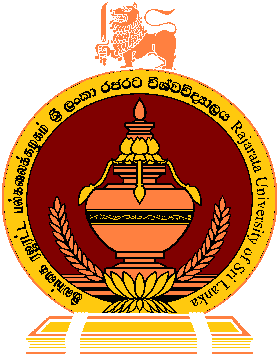Archaeological Laboratory

Archaeological Laboratory
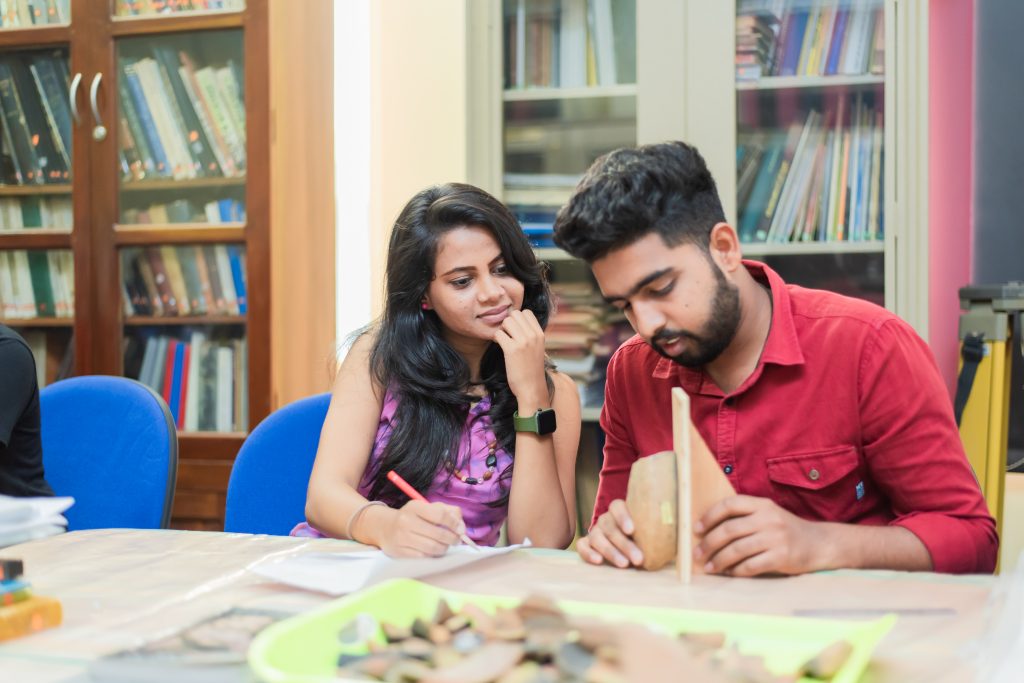
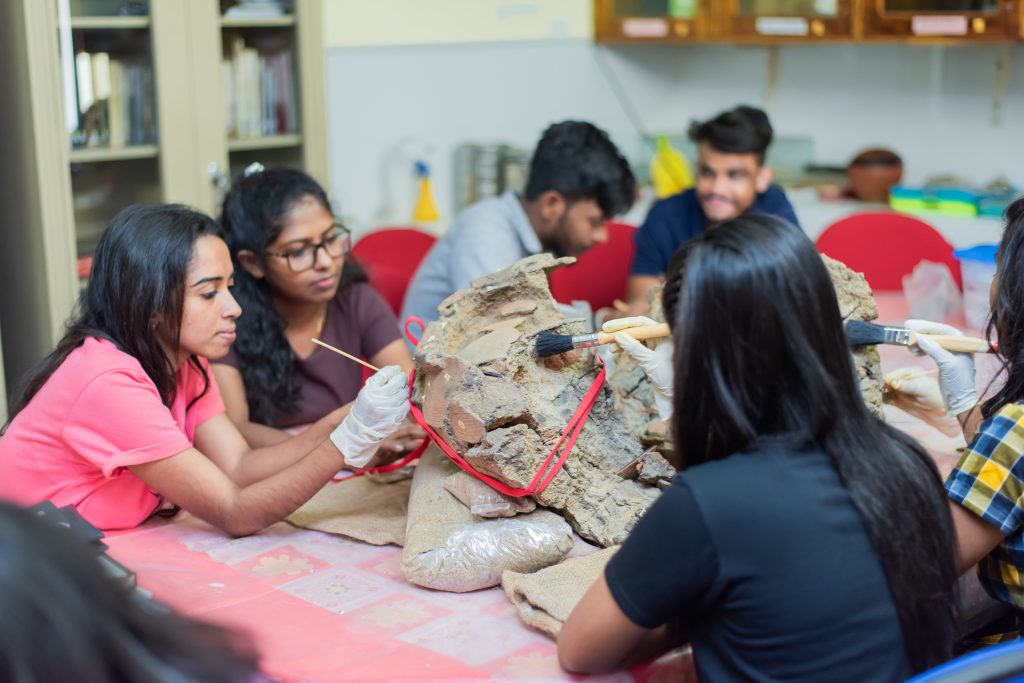
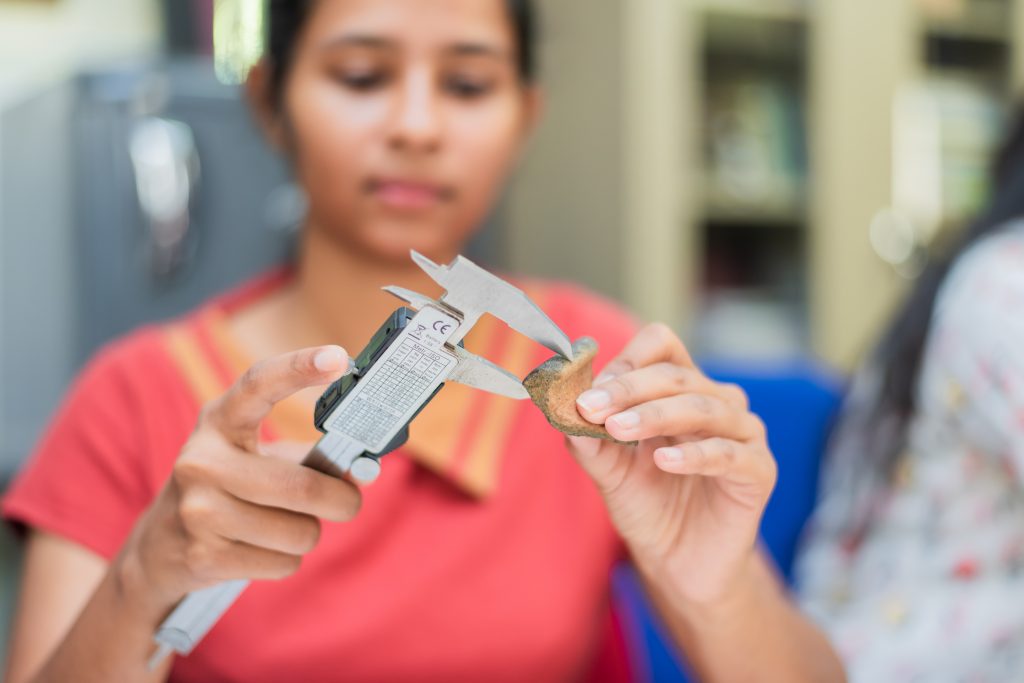
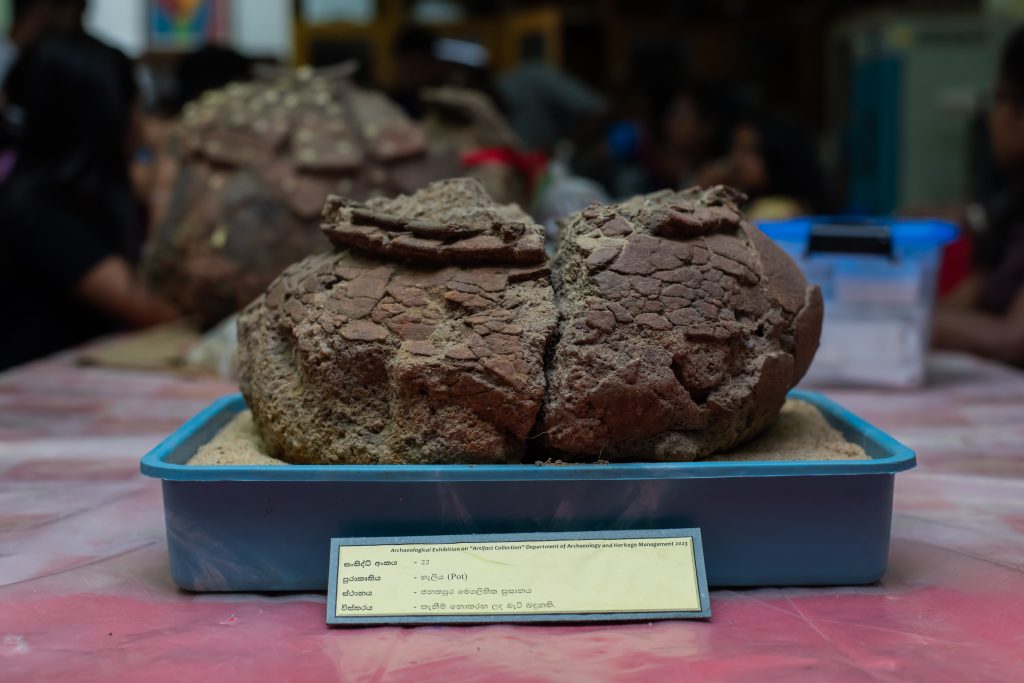

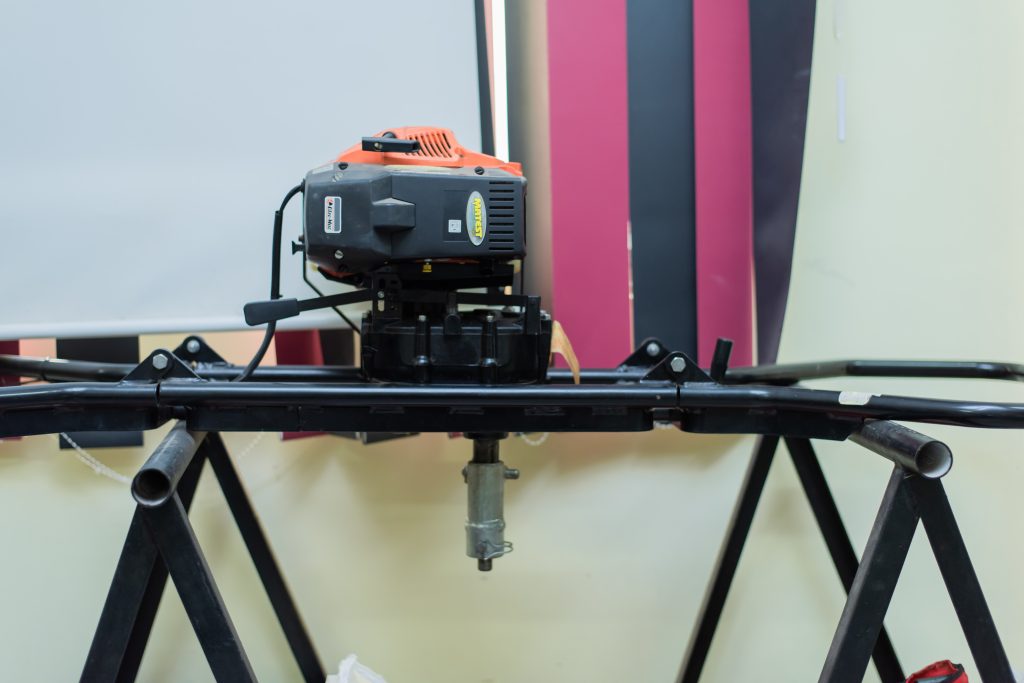
Our department has several laboratories on the ground floor of the Faculty of Social Sciences and Humanities building. Using these facilities are permitted to the students use when appropriate; anyone wishing to use the lab space should contact the Head or the Laboratory Coordinator.
The Archaeology Lab established in 2015 serves as the centre for the practical activities associated with the study program in the Department. Currently, the lab is using for teaching laboratory methods in the practical subject components. The Lab is designed to provide students with guided training in the elementary archaeological laboratory methods, data description, artefact identification, classification, analysis, interpretation, presentation, and curation. It expects to provide a hands-on experience with a range of artefacts, assemblages, research questions, analyses, and presentation. Field courses in archaeology, archaeological site survey and field archaeology (excavation) proceed from the archaeology lab. Currently, analytical works of the Yan Oya Basin Archaeological Project is operating from the archaeology lab.
The Archaeological Lab is comprised of curation facilities, field equipment and field storage lockers. High-tech surveying, excavation and recording equipment ranging from GPS units and electronic total station theodolite to trowels, compasses and measuring tape, analytical tools, material conservation related instruments, microscopes, chemical stores field equipment and supplies. We are pleased to say that the laboratory is the only such equipped in an archaeological department in the universities of the country. The Conservation Lab of the Department has also located the Archaeology Lab. The lab could use as the centre for student projects, outreach, and subject based student activities. Get the proper permission and guidance from the head on such occasions
General guidelines for the use of laboratory:
- No food or drink should be consumed or stored in any of the laboratories.
- No equipment or supplies should be removed from the laboratory without the permission of the Head of the Department.
- No research materials, artefacts, remains or the like that are on a table or counter should be disturbed or moved without first contacting the person in charge of that material.
- Only the students in the Archaeology and Heritage Management study programmes are allowed to frequent use of the Laboratory. Others who wish to use or visit the laboratory must seek prior approval of the Head of the Department.
Archaeology Practical Laboratory

Archaeology Practical Laboratory
Research Museum
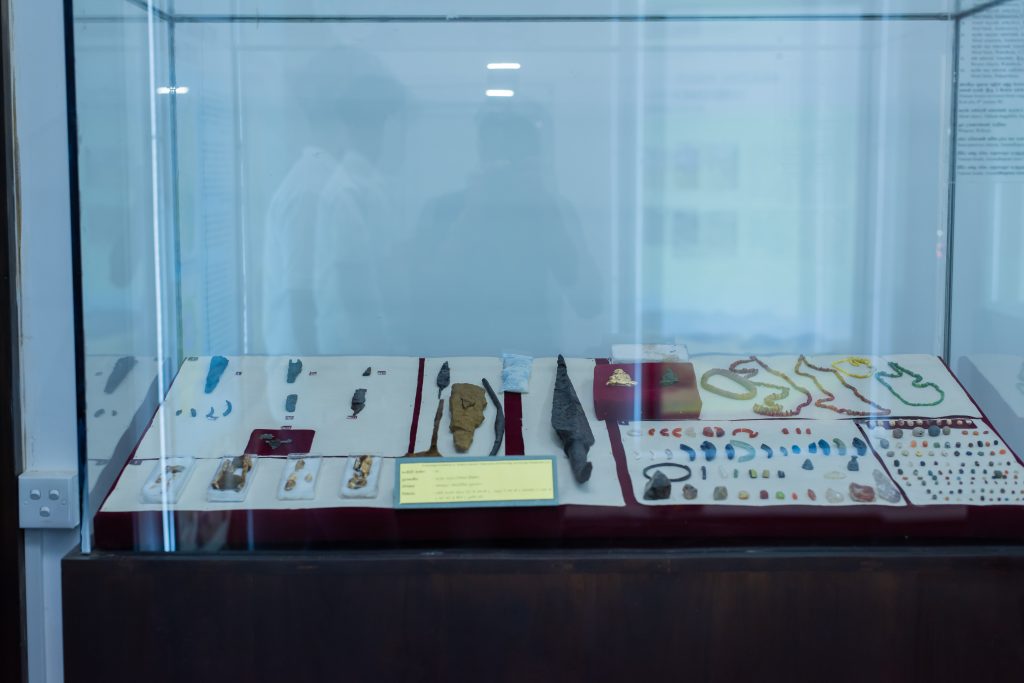

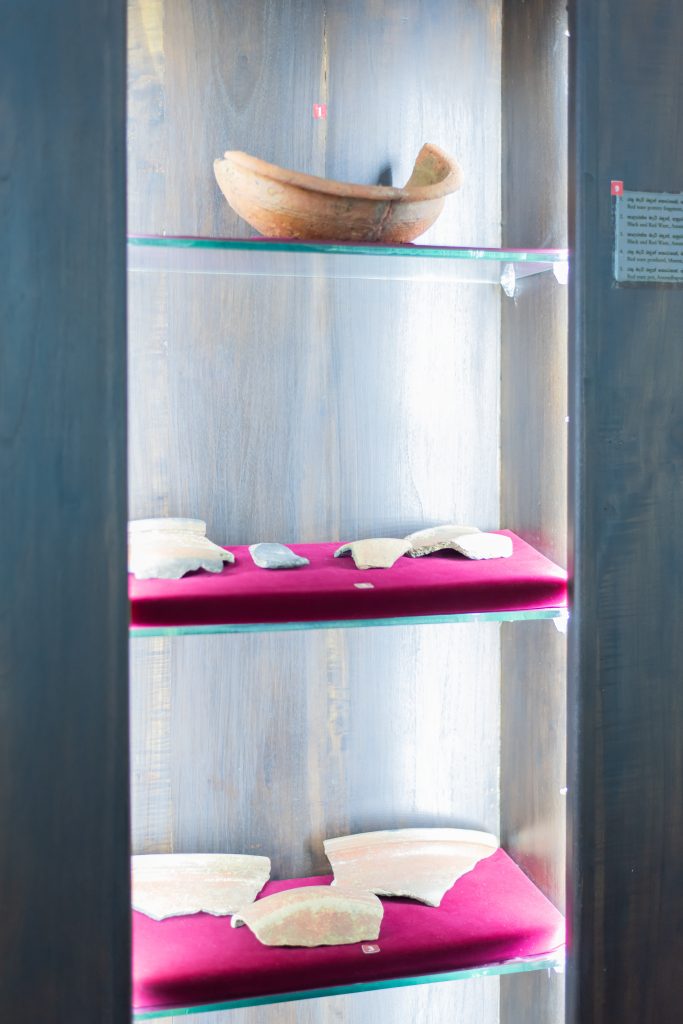
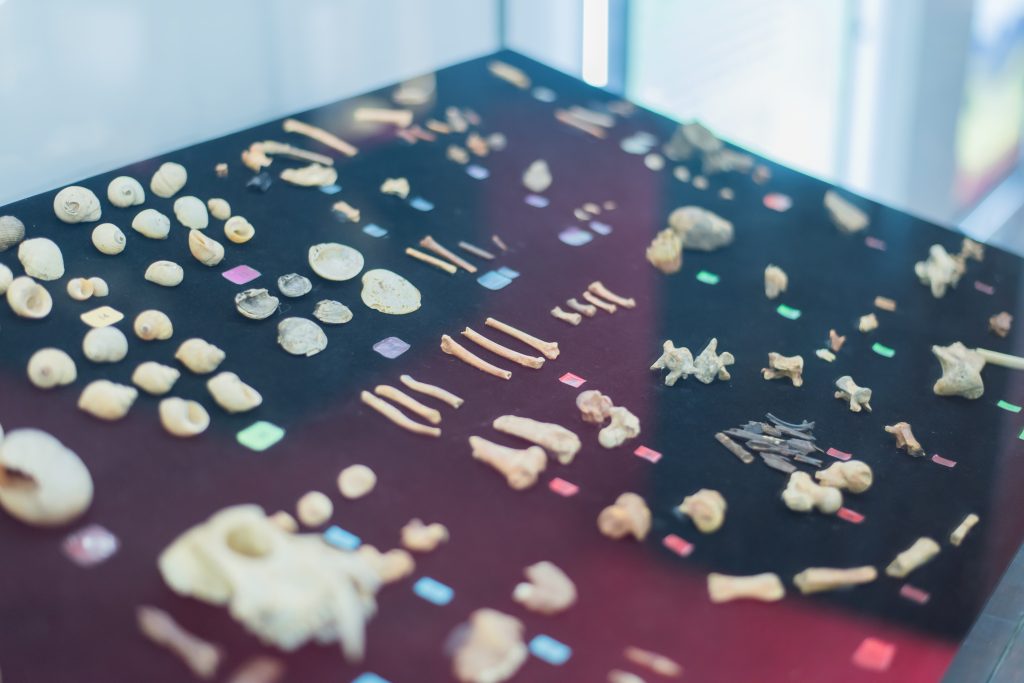
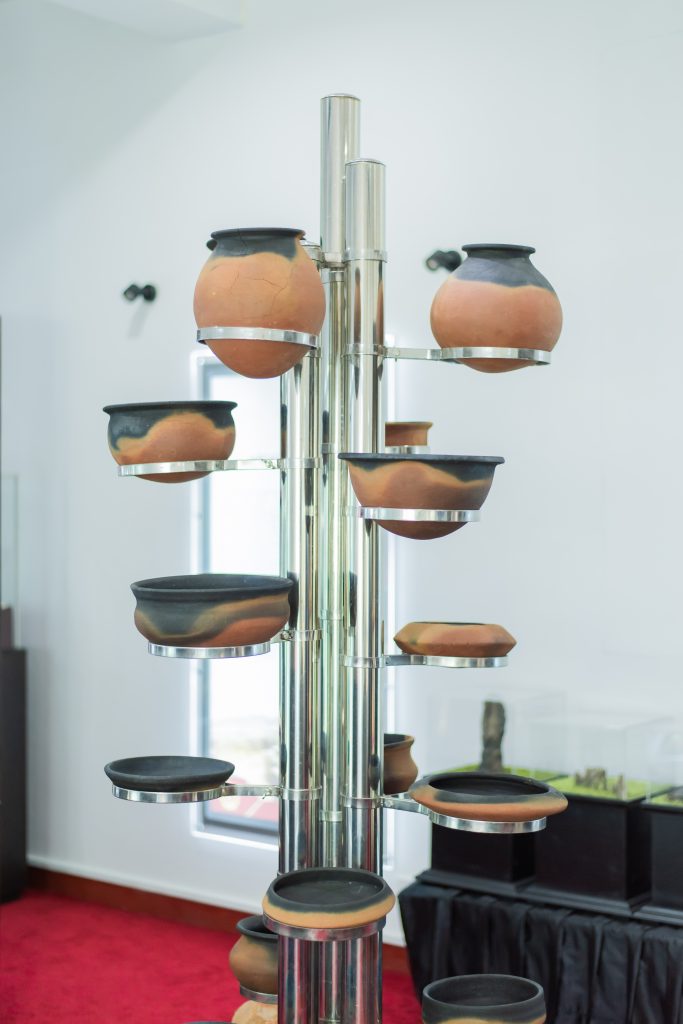
The Department of Archaeology and Heritage Management is trying to establish a firm tradition of teaching and research in Archaeology. Supportive to it we recently start to houses an important reference collection in a separate room dedicated to storing a broad range of specimens. Both the research and teaching collections are focused on completeness and ease of use rather than display. Mainly it contains potteries, stone tools, other significant artefacts, minerals and stones, fossils, skeletons of modern animals. These will use as an aid to the identification of archaeological material, as well as for research purposes.
Department scheduled to organise a workshop in 2016 on the production of stone artefacts, lithic technology, to students for developing skills in the identification, classification and explanation of archaeological objects. These understandings are formed through the laboratory by conventional lectures, instructional film, laboratory study of archaeological specimens, and a program of student experiments.
The reference collection of the Department is open to students and researchers. Researchers who wish to use the collection have to arrange the visit by requesting from the Head of the Department. We are taking the effort to improve the collection and maintain it as one of the primary outputs. New specimens are acquiring through annuals field research, and practical sessions are added whenever is possible, and we are also keen on setting up collaborations and possible exchanges with museums and the Department of Archaeology, Sri Lanka.
Soft Skill Laboratory
Softskill labs were established under the HETC- IDAS project and this activity aimed to strength undergraduates Soft Skills through Soft Skills Lab. The Soft Skills Lab enables the student to gain amazing dexterity in dealing with various on-the-job situations. The various activities done in the class enables the student to overcome lack of confidence, stage fear, and shyness and to build a strong personality. The Soft skill labs designed to provide strong practical orientation to the students to build their communication, interpersonal and leadership skills to increase the employment marketability and to compete successfully in the business environment. Focal areas to be addressed were as follows.


